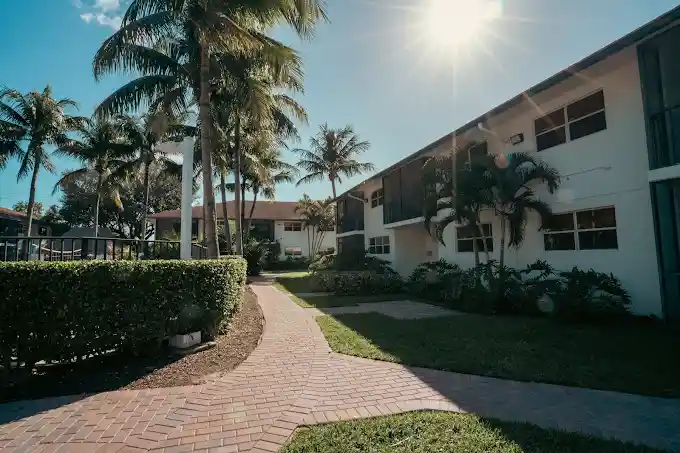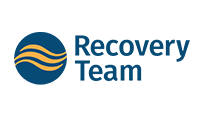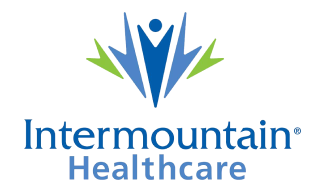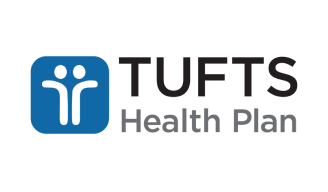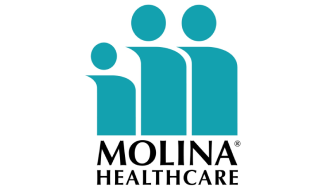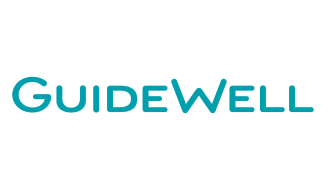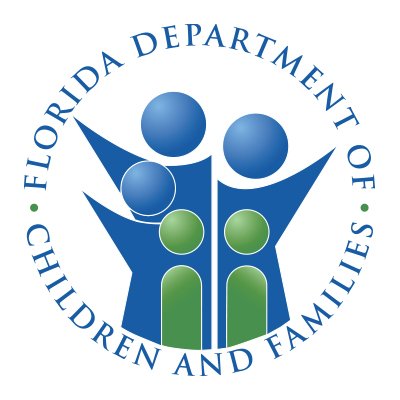
Delray Beach, Florida, United States
The Recovery Team - Delray Beach
Verified
Verified
This provider’s information has been quality-checked by Recovery.com’s Research Team for accuracy and completeness, including center verification through appropriate third-party organizations.
Joint Commission Accredited
The Joint Commission accreditation is a voluntary, objective process that evaluates and accredits healthcare organizations (like treatment centers) based on performance standards designed to improve quality and safety for patients. To be accredited means the treatment center has been found to meet the Commission's standards for quality and safety in patient care.
Provider's Policy
Through our insurance verification process, we will confirm the specifics of your plan, the types of care covered by your insurance, and any out-of-pocket costs or deductibles you may be responsible for. Our process is entirely confidential and will not have any impact on your insurance, employment, or personal situation.
Estimated Cash Pay Rate
The cost listed here (Call Center for Pricing) is an estimate of the cash pay price. Center pricing can vary based on program and length of stay. Contact the center for more information. Recovery.com strives for price transparency so you can make an informed decision.
Highlights from the Center
Highlights
These highlights are provided by and paid for by the center.
Therapeutic Location
Pool
Certified Professionals
Trauma-Informed Care
About The Recovery Team - Delray Beach
The Recovery Team can help clients get their lives back on track. They offer a range of care options for substance use and mental health conditions. Their experts can guide clients through step-down levels of care tailored to their needs and preferences. Residential treatment provides 24/7 care, typically over 30-90 days. Their day treatment offers a similar program, but clients remain home in the evenings. And their IOP is usually 3 hours a day, 5 days per week. They offer specialized programs for professionals, first responders, and veterans.
Address Addiction & Mental Health Together
The Recovery Team uses evidence-based treatment therapies that include individual, family, and group therapy, as well as massage, yoga, and experiential therapies. They treat mental health conditions both as primary concerns and when they co-occur with addiction, recognizing that the two often interact and reinforce each other. By combining medication, therapy, and support services, they address both substance use and mental health conditions to improve treatment outcomes.
Enhance Recovery with TMS Therapy
The Recovery Team believes that transcranial magnetic stimulation (TMS) therapy can be a powerful tool in helping clients recover from addiction and achieve lasting sobriety. TMS is a non-invasive and FDA-approved treatment that uses magnetic fields to stimulate nerve cells in the brain. It is often used to treat mental health disorders, such as depression and anxiety, but has been gaining attention as a treatment option for addiction. It is a painless procedure that does not require sedation or anesthesia. Each session typically lasts for 30-60 minutes, and clients can resume their daily activities immediately after treatment.
Stay Supported After Treatment
The Recovery Team ensures clients receive the best possible care even after leaving the facility. Aftercare plans are specifically tailored to fit the client’s life outside of rehab, and the alumni community is available at no cost. Their team also provides resources like job search assistance, guidance in finding healthy sober-living environments, and more.
Take Advantage of Well-Rounded Amenities
The Recovery Team’s facility in Delray Beach offers a serene and supportive environment for recovery, just 5 minutes from the beach. Residential clients stay in private or shared rooms. Clients enjoy amenities like a swimming pool with lounge chairs, a full gym, and basketball and volleyball courts. Stress relief and physical wellness are prioritized with services like massage therapy, chiropractic care, and yoga. Creative therapies, including art and music, provide outlets for processing emotions, while meditation encourages inner peace. A dedicated nutritionist ensures proper nutrition to support mental health, rounding out a comprehensive approach to relaxation, healing, and recovery.
Read More
Insurance Accepted
Provider's Policy:Through our insurance verification process, we will confirm the specifics of your plan, the types of care covered by your insurance, and any out-of-pocket costs or deductibles you may be responsible for. Our process is entirely confidential and will not have any impact on your insurance, employment, or personal situation.
Balance Recovery with Professional Responsibilities
Recognizing that putting one’s life on hold for 30 days of treatment may not be feasible, the Recovery Team created a program specifically designed for executives, doctors, lawyers, therapists, psychologists, healthcare professionals, and more. Through tailored programs and therapies, their professional program addresses how the demands of these careers— long hours, high stress, and access to prescription drugs—can contribute to the development of addiction. Their multidisciplinary team is well-versed in the unique needs of professionals and has established connections with various employers, hospitals, and state boards to ensure that the transition back to work is seamless.
First Responders Build Resilience
First responders—police officers, firefighters, EMTs, and others—selflessly put their lives on the line every day. The Recovery Team recognizes that the pressures and traumas associated with these professions can lead to substance use and addiction, which is why they offer tailored treatment programs to address first responders’ unique medical and mental health needs. Given the high-stress nature of their work, trauma-informed therapies like cognitive behavioral therapy, eye movement desensitization and reprocessing (EMDR), and mindfulness-based stress reduction (MBSR) can help manage any underlying trauma or post-traumatic stress disorder (PTSD). Clients learn stress management techniques, relationship-building skills, and other healthy habits to develop coping mechanisms and prevent relapse.
Veterans Heal from Combat-Related Trauma
The Recovery Team supports veterans in their reintegration into civilian life, promotes the healing of trauma, and helps them overcome addiction. Their veterans program is tailored to meet the unique needs of the brave men and women experiencing the consequences of deployment and combat. The program includes individual and group counseling, trauma-focused therapies, medication-assisted treatment (MAT), and holistic approaches such as yoga and meditation. Beyond helping veterans attain and sustain sobriety, they address co-occurring mental health conditions such as PTSD and depression. They provide a secure, supportive, and welcoming atmosphere where veterans can feel understood and comfortable.
Enhance Recovery With Innovative Support
Additional cutting-edge treatments like GeneSight Testing and biomedical feedback complement The Recovery Team’s comprehensive range of therapy options. GeneSight Testing uses genetic insights to tailor psychiatric medications to a client’s unique metabolism, reducing guesswork. Biomedical feedback offers a drug-free approach to regulating stress, anxiety, and mood using real-time physiological data for improved emotional balance.

Center Overview
Estimated Cash Pay Rate
Men and Women
Men and women attend treatment for addiction in a co-ed setting, going to therapy groups together to share experiences, struggles, and successes.
Professionals
Busy, high-ranking professionals get the personalized treatment they need with greater accommodations for work, privacy, and outside communication.
Veterans
Patients who completed active military duty receive specialized treatment focused on trauma, grief, loss, and finding a new work-life balance.

Treatment Focus
You can admit to this center with a primary substance use disorder or a primary mental health condition. You'll receive support each step of the way and individualized care catered to your unique situation and diagnosis.
Treatment
Specializations
Transcranial Magnetic Stimulation
Localized magnetic pulses stimulate areas of the brain to increase brain activity and reduce abnormal functions.
Alcohol
Using alcohol as a coping mechanism, or drinking excessively throughout the week, signals an alcohol use disorder.
Anxiety
Anxiety is a common mental health condition that can include excessive worry, panic attacks, physical tension, and increased blood pressure.
Co-Occurring Disorders
A person with multiple mental health diagnoses, such as addiction and depression, has co-occurring disorders also called dual diagnosis.
Drug Addiction
Drug addiction is the excessive and repetitive use of substances, despite harmful consequences to a person's life, health, and relationships.
Professionals
Busy, high-ranking professionals get the personalized treatment they need with greater accommodations for work, privacy, and outside communication.
Veterans
Patients who completed active military duty receive specialized treatment focused on trauma, grief, loss, and finding a new work-life balance.
First Responders Program
Paramedics, police officers, firefighters, and others join in a specific First Responders program, usually focused on trauma, grief, and work-life balance.
Treatment Services
Day Treatment
In a PHP, patients live at home but follow an intensive schedule of treatment. Most programs require you to be on-site for about 40 hours per week.
Outpatient
During outpatient rehab, patients attend a structured treatment program while continuing to live at home.
Residential
In a residential rehab program, patients live onsite, with access to daily treatment and 24-hour care. An average stay is 30-90 days.
Transitional Living
After rehab, some people stay in a transitional living situation before returning home. These programs offer structure, education, and community support.
Approaches
Spiritual Emphasis
Spirituality connects patients to a higher power and helps strengthen their recovery, hope, and compliance with other treatment modalities.
Evidence-Based
A combination of scientifically rooted therapies and treatments make up evidence-based care, defined by their measured and proven results.
Holistic
A non-medicinal, wellness-focused approach that aims to align the mind, body, and spirit for deep and lasting healing.
Therapies
1-on-1 Counseling
Patient and therapist meet 1-on-1 to work through difficult emotions and behavioral challenges in a personal, private setting.
Meditation & Mindfulness
A practiced state of mind that brings patients to the present. It allows them to become fully aware of themselves, their feelings, and the present moment.
Transcranial Magnetic Stimulation
Localized magnetic pulses stimulate areas of the brain to increase brain activity and reduce abnormal functions.
Art Therapy
Visual art invites patients to examine the emotions within their work, focusing on the process of creativity and its gentle therapeutic power.
Eye Movement Therapy (EMDR)
Lateral, guided eye movements help reduce the emotional reactions of retelling and reprocessing trauma, allowing intense feelings to dissipate.
Family Therapy
Family therapy addresses group dynamics within a family system, with a focus on improving communication and interrupting unhealthy relationship patterns.
Massage Therapy
Massage therapy relieves physical and emotional tension, reduces pain, promotes relaxation, and improves emotion regulation.
Medication-Assisted Treatment
Combined with behavioral therapy, prescribed medications can enhance treatment by relieving withdrawal symptoms and focus patients on their recovery.
Conditions We Treat
Personality Disorders
Personality disorders destabilize the way a person thinks, feels, and behaves. If untreated, they can undermine relationships and lead to severe distress.
Anger
Although anger itself isn't a disorder, it can get out of hand. If this feeling interferes with your relationships and daily functioning, treatment can help.
Anxiety
Anxiety is a common mental health condition that can include excessive worry, panic attacks, physical tension, and increased blood pressure.
Bipolar
This mental health condition is characterized by extreme mood swings between depression, mania, and remission.
Codependency
Codependency is a pattern of emotional dependence and controlling behavior. It's most common among people with addicted loved ones.
Depression
Symptoms of depression may include fatigue, a sense of numbness, and loss of interest in activities. This condition can range from mild to severe.
Obsessive Compulsive Disorder (OCD)
OCD is characterized by intrusive and distressing thoughts that drive repetitive behaviors. This pattern disrupts daily life and relationships.
Post Traumatic Stress Disorder
PTSD is a long-term mental health issue caused by a disturbing event or events. Symptoms include anxiety, dissociation, flashbacks, and intrusive thoughts.
Trauma
Some traumatic events are so disturbing that they cause long-term mental health problems. Those ongoing issues can also be referred to as "trauma."
Substances We Treat
Alcohol
Using alcohol as a coping mechanism, or drinking excessively throughout the week, signals an alcohol use disorder.
Co-Occurring Disorders
A person with multiple mental health diagnoses, such as addiction and depression, has co-occurring disorders also called dual diagnosis.
Cocaine
Cocaine is a stimulant with euphoric effects. Agitation, muscle ticks, psychosis, and heart issues are common symptoms of cocaine abuse.
Drug Addiction
Drug addiction is the excessive and repetitive use of substances, despite harmful consequences to a person's life, health, and relationships.
Ecstasy
Ecstasy is a stimulant that causes intense euphoria and heightened awareness. Abuse of this drug can trigger depression, insomnia, and memory problems.
Heroin
Heroin is a highly addictive and illegal opioid. It can cause insomnia, collapsed veins, heart issues, and additional mental health issues.
Methamphetamine
Methamphetamine, or meth, increases energy, agitation, and paranoia. Long-term use can result in severe physical and mental health issues.
Opioids
Opioids produce pain-relief and euphoria, which can lead to addiction. This class of drugs includes prescribed medication and the illegal drug heroin.
Prescription Drugs
It's possible to abuse any drug, even prescribed ones. If you crave a medication, or regularly take it more than directed, you may have an addiction.
Aftercare
Experience
Personal Amenities
Amenities
Special Considerations
First Responders Program
Paramedics, police officers, firefighters, and others join in a specific First Responders program, usually focused on trauma, grief, and work-life balance.
Activities
Yoga
Yoga is both a physical and spiritual practice. It includes a flow of movement, breathing techniques, and meditation.
Off-Site Amenities
Smoking and Vaping Policy
Professional Staff

Christine Robinson
Therapist
RCSWI

Diane Dinkens
Program Director

Lindsay Shields
LPN

Rosie Ehrenfeld
Clinical intake coordinate
View More Team Members
Learn more about The Recovery Team - Delray Beach
Testimonial
This experience has been truly exceptional, exceeding all expectations. The staff's dedication and kindness have created a warm and welcoming atmosphere.
Marceline
We love hearing about your treatment experience
Help individuals and families seeking treatment by sharing your first-hand experience with this treatment provider. Review Guidelines.









